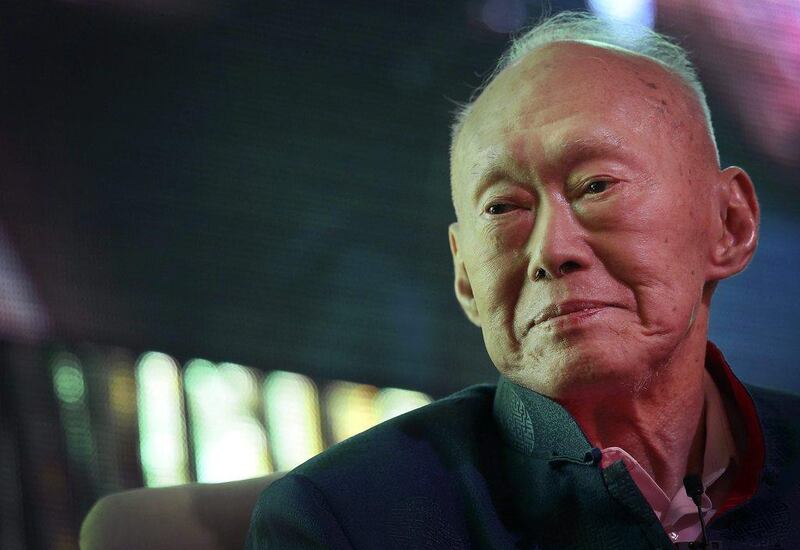After the sad passing yesterday of Singapore’s much loved founding prime minister Lee Kuan Yew, an Emirati friend called me to express his condolences. My friend had previously worked for a prominent Abu Dhabi company in Singapore. He understood the impact of this event, not only for Singaporeans, but also for the world stage. Paying tribute to Lee, he compared him to Sheikh Zayed.
The comparison with the UAE’s “father of the nation” is apt. Emotionally, Lee’s loss looms large for the people of Singapore.
In terms of a lasting legacy, both men dedicated their lives to the single purpose of improving the lives of their citizens. Each laid a foundation for future generations to build upon. The nations they forged are of global relevance today. They serve as benchmarks of achievement for their respective regions and beyond.
Indeed, both Lee and Sheikh Zayed were of the same generation. Born just five years apart they experienced similar historical upheavals. Both served at the helm for almost four decades. They proved far-sighted architects of their respective nations.
What made the difference is that both Lee and Sheikh Zayed opposed conventional wisdom to achieve success.
When Singapore became independent, the fashionable ideology of the times was import substitution and economic protectionism. Lee built Singapore’s success instead on export-orientated industrialisation, removing tariff barriers and human capital development through education. He also implemented business friendly policies, social order and a corruption-free government.
In his management of Abu Dhabi’s oil industry Sheikh Zayed also avoided the prevailing orthodoxy of confrontation. He instead created a unique partnership with international oil companies. This approach gave Abu Dhabi sovereignty over its oil wealth while bringing in valuable know-how to boost its own human capital development. He also worked with the other rulers in the federation to welcome investors, strengthen governance and assure domestic stability.
What is remarkable is how both founding leaders brought their nations from Third World to First World on parallel but separate tracks. The Singapore that Lee shaped and the institutions he developed have since provided a model for both Abu Dhabi and Dubai. Conversely, the UAE’s own remarkable growth trajectory has also drawn Singapore’s interest in an exchange of development experiences. After stepping down as prime minister, Lee was invited to visit the UAE on four occasions in his role as Singapore’s minister mentor.
In November 2005, he visited Dubai and met Sheikh Mohammed bin Rashid, then Crown Prince of Dubai. Subsequently he visited Abu Dhabi in January and November 2006 when he met Sheikh Mohammed bin Zayed, Crown Prince of Abu Dhabi and Deputy Supreme Commander of the Armed Forces. Singapore was also included as the only Asian benchmark nation in Abu Dhabi’s Vision 2030.
In his last visit to the UAE in March 2008, Lee delivered a speech at the launch of the Investment Corporation of Dubai. Applauding Dubai’s visionary leadership, he wished Dubai all the best in navigating the challenges ahead and deciding on the appropriate model for its continued success.
In his speech, Lee also quoted a Singapore saying: “Big fish eat small fish and small fish eat shrimp.”
Describing Singapore and Dubai as “shrimps”, he noted that small cities would always be vulnerable and were “not masters of their own destiny”. They perform no irreplaceable function in the international system “because if they do not exist, the world will carry on as before”. He concluded that small states had to be “better organised, alert and nimble to counter or evade threats and seize opportunities”.
Lee saw the world as it was, not as he wished it to be. He did everything with the best interests of Singapore and Singaporeans at heart. He succeeded against the odds to make Singapore relevant. His success was Singapore’s gain. The UAE and Singapore can be truly thankful for leaders like Lee and Sheikh Zayed. It is the challenge of the next generation to preserve their legacy.
Umej Bhatia is Singapore’s ambassador to the UAE





